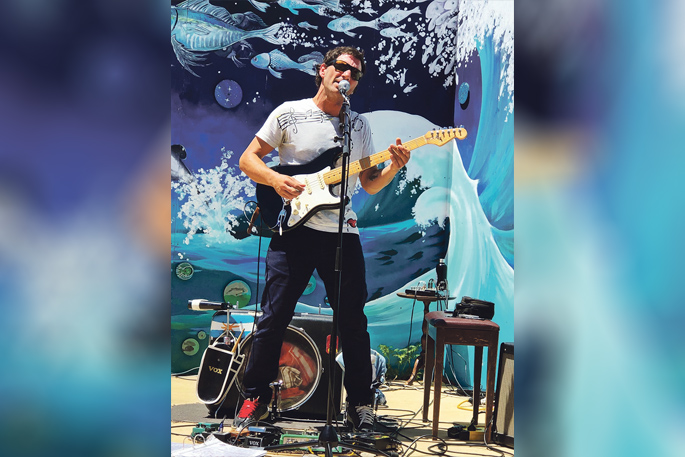I have always thought of the Tauranga music scene as pretty middle-of-the-road. But perhaps I've been wrong.
That struck me the other day as I prepared to review another couple of local album releases. Perhaps the scene here, despite its general straightness, is actually a little more off-kilter than I thought.
Of course there is an underground scene and let me tip the old fedora to the work of Tauranga Music Sux, more recently rebranded as Your Enabler Presents, fighting against musical good taste in all shapes. A takeover of the Historic Village is planned next February for the No Future Festival which will include dozens of loud guitar bands, some with names that I can actually print in a family newspaper.
More power to them. But what I was wondering was why, despite Tauranga being such a safe place musically, the albums I have been reviewing are so eclectic.
You have Anthony Coulter's eccentric musical theatre-influenced songs, pure old-style blues from Mike Garner, blues rock from Hybrid Blues, Afro-futurist instrumentals from The Afrolites, virtuoso guitar instrumentals from Sean Bodley and, this week, Latino folk rock from Santiago Rebagliati. The most mainstream recent thing has been Janne Izett's album, Seasons, and even that's not exactly pop music.
Tauranga may not produce much scary challenging music but it's certainly a little unusual.
LATINO GROOVES
This week it's Latin music, or at least a Latin hybrid. Santiago, originally from Argentina, has been resident here now for a couple of decades, singing, writing and playing guitar, solo, in various duos and occasionally a band. You can hear him in bars around the area and at events such as the Incubator's Illuminarti Festival where he played last weekend.
Earlier this year he finished his latest album, Pass It On, which he's been working on for roughly two years in his 2 x 3 rustic home studio. Making music requires patience and dedication. Santi was using the same gear to play gigs and to record, so it meant quite a bit of work just to set up the home studio again each week after performing.
There are 14 songs, all written by Santi and all played by him. As well as his first instrument, guitar, he played drums and other percussion - clave, cowbell, guiro, triangle, shaker, rain stick – bass, trumpet, trombone, melodica and marimba.
Then there was the instrument he calls Ernesto, probably the only real armadillo body charango in NZ, which features on the opening track Sal De Ahi, a song inspired by a children's song about a little goat and wolf that his children love.
DISTINCTIVE
Most of the songs are in English, a few in Spanish. Santi favours massed vocals. Each song has several, creating a chorus of unison and harmony voices. It's a very distinctive sound.
Actually, there are a lot of distinctive sounds here. I guess you could describe it as lo-fi Latino with a Beatles influence (as you might expect from a big George Harrison fan). There are banks of the aforementioned percussion, many guitars, and rhythms that are clearly from different musical traditions. There are also some delightful bursts of horn playing. Second track Decision opens with such a blast, sitting somewhere between Tom Waits and a ska carnivale.
The most familiar song, Take It, is an older one of Santi's and I'm sure he's recorded it before, a 'Keep On Trucking” road song with a chorus that sticks in the brain. But there is a bit of everything here. If there is a criticism to be made it is possible that there are simply too many ideas and too much going on - I find it exhilarating, some might feel it exhausting.
Amongst the many most enjoyable eccentricities are two versions of Social Club, dedicated to the venue Santi has played so many times. It is in Gypsy Jazz style. Or sort of guerilla neo-Gypsy jazz, one vocal, one instrumental and both fast frantic fun.
You can find Pass It On along with two other Santiago Rebagliati albums on Spotify. Take a walk on the wild side!



0 comments
Leave a Comment
You must be logged in to make a comment.